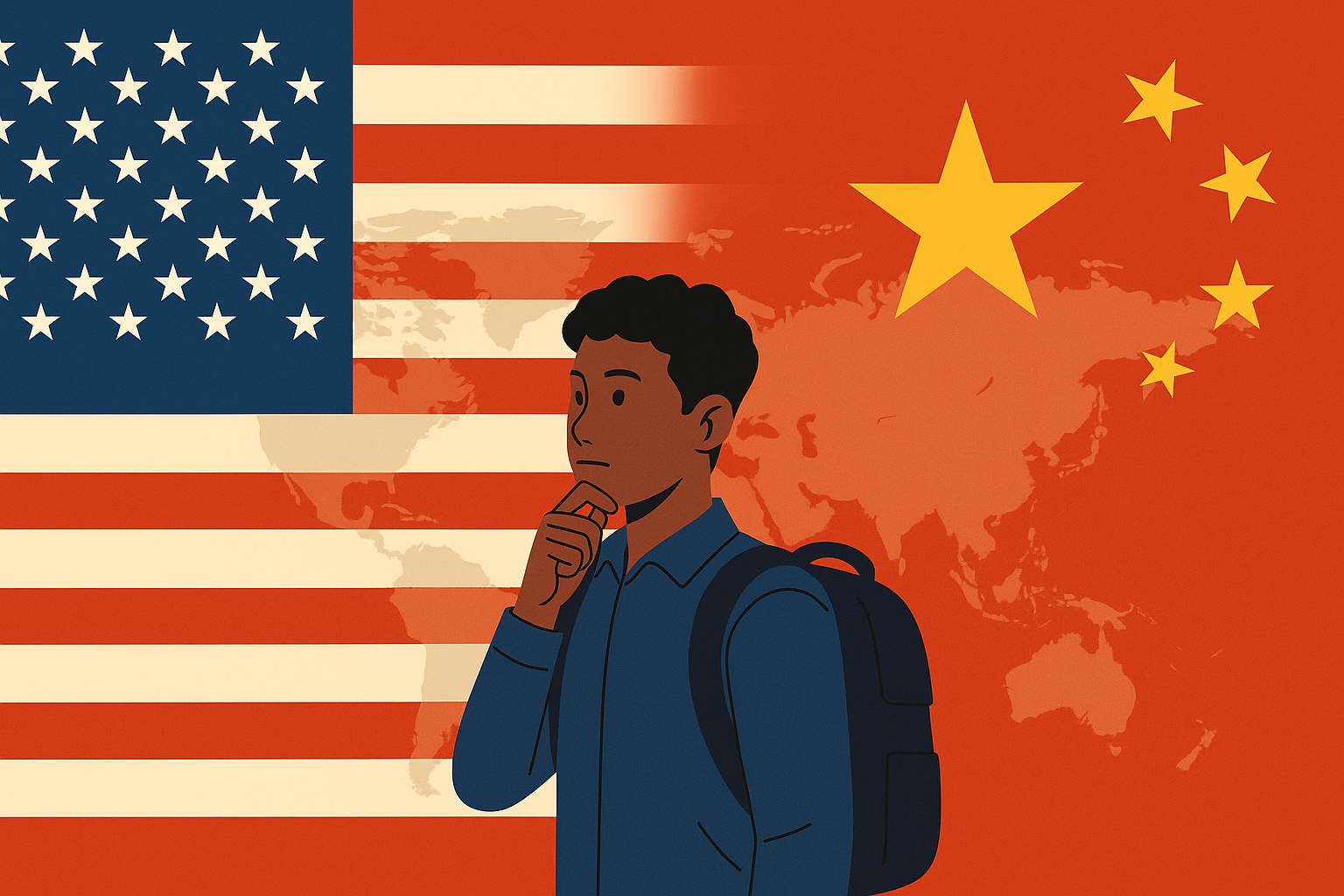Lessons from China's Modern History
How the past can inform our future
6/13/20252 min read


Lessons from China’s Modern History: Helpful Insight for International Students
As global politics and economies shift, understanding the historical relationship between the United States and China can offer international students powerful insights—especially those planning to study in the U.S.
China’s modern history is full of lessons in innovation, cautionary tales of political disruption, and reminders of how closely intertwined education, economics, and global influence truly are.
In this blog, we explore three essential takeaways from China’s recent history that every international student should understand—and how these lessons can help guide your academic journey.
The Role of Chinese Students in U.S. Higher Education
A Legacy of Global Leadership
For over 80 years, the U.S. has led the world in higher education, drawing in talent from across the globe. Since opening up in the 1980s, China has been a key contributor to that talent pipeline.
A Financial and Intellectual Powerhouse
Today, Chinese students make up about 25% of all international students in the U.S., contributing significantly to university revenue by often paying full tuition. They also drive research, innovation, and cross-cultural engagement on campus.
Turbulence Ahead?
Stricter U.S. visa policies and political tensions are starting to shift that flow. Students who might have chosen American universities are now considering Canada, the UK, or Australia.
💡 Student Tip:
Keep an eye on policy changes when choosing your destination. Understanding geopolitical trends will help you make more strategic academic decisions.
Industrial Policy & Innovation: China’s Strategic Rise
What History Teaches Us
China’s rapid economic ascent wasn’t accidental. Like Japan and Germany before it, China implemented long-term, stable industrial policies that prioritized manufacturing efficiency, R&D investment, and predictable growth.
The Power of Policy Planning
While other countries sometimes pivot policies too quickly, China’s consistency has helped it become a global economic giant—especially in science, technology, and engineering sectors.
💡 Student Tip:
If you’re planning for a future-proof career, consider studying STEM, international business, or innovation policy—fields directly linked to global economic trends.
The Cultural Revolution: Why History Matters
A Disruptive Era
In the 1960s, China’s Cultural Revolution brought chaos to its education system, government, and society. Spearheaded by Mao Zedong, the movement led to widespread suffering and cultural destruction.
Modern Reflections
Though rarely emphasized in today’s Chinese narratives, the Cultural Revolution is a cautionary tale about the dangers of ideology-driven governance and the suppression of dissent.
Why It Matters for Students
This episode reminds us how fragile progress can be—and why critical thinking, balanced leadership, and open societies are essential for innovation and growth.
💡 Student Tip:
Add historical awareness to your academic toolkit. Whether you're studying political science, sociology, or even engineering, an understanding of history helps you lead and innovate responsibly.
Conclusion: Let the Past Guide Your Future
By studying China’s modern history—from its economic strategy to its cultural challenges—you gain more than knowledge. You gain perspective.
These insights can help you choose the right study programs, understand global forces shaping education, and prepare you to thrive as a thoughtful, informed global citizen.
Ready to Start Your Study Abroad Journey?
At Elite Edvising, we help students choose programs that align with their academic interests and career ambitions—grounded in global awareness. Whether you're interested in the U.S. or exploring international options, we’ll help you find your best path forward.
👉 Contact us today to get expert, personalized guidance for your study abroad goals.
Source/credit: What To Learn From China
